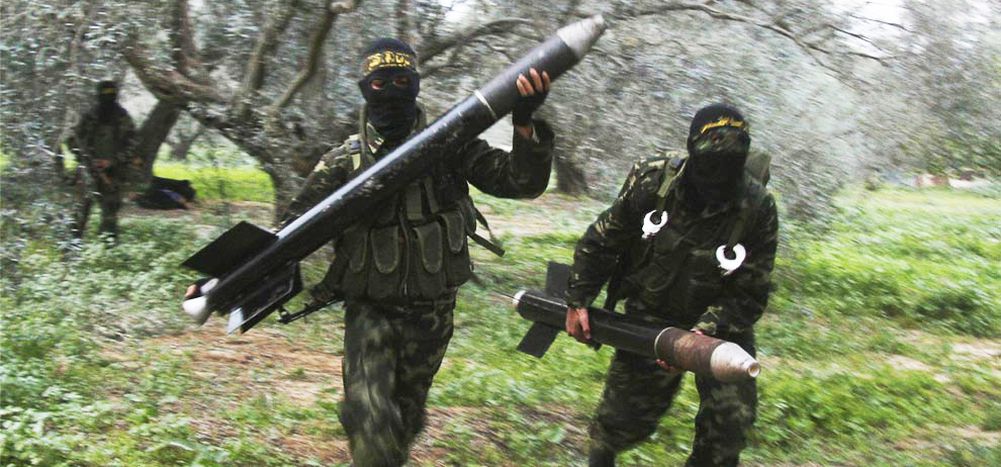
European Jihadists in Syria
Published on
Europeans are heading to Syria in ever greater numbers. The well documented brutality of Bashar al-Assad has become an international jihadi rallying point. It is estimated there are 500 Europeans fighting in Syria. But what kind of people are leaving the EU for Syria and why?
Getting to the battlefield from Europe is as easy as going on holiday - a visa-free trip to Turkey followed by a drive to the border and you’re in a war-zone. The trip costs less than 500 euros. Governments are concerned that returning militants, further radicalised fighting alongside Al-Qaeda affiliates, will have picked up skills on the battlefield that will allow them to launch terrorist attacks in Europe upon their return. But radical rhetoric aside, what really stands out is the humble, ordinary origins of many of the Europeans jihadists.
BRAINWASHING THROUGH SOCIAL NETWORKS
A contingent of five young Muslim friends from Portsmouth are currently fighting in Syria. Amongst them is Ifthekar Jaman, 23, the son of a curry house owner. He set off for Syria in May, telling his family he was going for two weeks to distribute aid. Now he is fighting alongside an al-Qaeda affiliate called ISIS- the Islamic State of Iraq and Sham (Syria). Jaman told BBC Newsnight, ‘This is the duty on me... all these people are suffering. Muslims are being slaughtered.’ One of the other Portsmouth boys was a supervisor in Primark.
Particularly striking has been the British boys’ presence on social networks. They are overtly trying to tempt other Brits to join the fighting. In one video Jaman says, ‘Any brother hoping to come, then come. Alone or with a group.’ A radicalisation expert told the Telegraph, ‘The three top travel items that jihadists are saying are needed for Syria are toilet paper, a first aid kit and an iPad.’ Another Brit fighting in Syria is recording his experiences on Tumblr, telling tales of brotherly love and bombs and fireside heart to hears.
France: From Toulouse to Syria : A Tale of Two Brothers
As a one time colonial ruler of the country, France’s bonds with Syria run deeper than most. The French government estimates between 200-400 French citizens have joined the fighting. An unusually high proportion of these are converts. One particular tale of conversion and ‘jihadi tourism’ stands out.
Nicolas B., 30, comes from Toulouse’s troubled Izards estate. He had an unsettled upbringing and his disillusionment with society was accentuated by a conviction for dealing hashish. His father, Gerard B. told the BBC how Nicolas converted in 2010; ‘Nicolas was searching for work, for an identity, perhaps that’s why they succeeded.’ It’s a typical tale of extremists preying on the disillusioned.
Nicolas changed his name to Abu Abd Al-Rahman and set about converting his family. In one video filmed in Syria, Nicolas rejoices about the conversion of his 24-year-old half-brother; ‘Jean-Daniel my brother has joined me in Islam. It’s a present from Allah.’
The brothers told friends and family they were going to Thailand for a Thai boxing course but instead they went to Turkey then across the border to Syria. Their father told the BBC, ‘I raised my children on Nintendo and Coco Pops. To see them in Syria doing this is distressing.’ Having followed his older brother in the name of jihad, Jean-Daniel was killed in a clash with Syrian government forces in August, a mere two years after he converted. Their father laments the harmful influence of video games and brainwashing by extremists. ‘Those weren’t my sons who went to Syria,’ he says.
Germany: From the football field to the battlefield
Burak Karan was working his way up through the youth teams of the German national football setup. The son of Turkish immigrants, he played for Germany under-16s and 17s alongside players who went on to become superstars, like Tottenham’s Lewis Holtby, Real Madrid’s Sami Khedira and Schalke 04 players Dennis Aogo and Kevin Prince Boateng. He was a promising player, always good natured and garrulous.
His future looked bright, but at the tender age of twenty he suddenly stopped playing so he could devote his life to radical Islam. Whilst his friends were earning millions, scoring goals for club and country, Burak was on the battlefields of Syria. His brother, Mustafa, told German tabloid daily, Bild, that Burak started raising funds when the Syrian conflict erupted in 2011 to buy medical supplies for victims. Mustafa says that seven months ago he travelled to the Turkey-Syria border with his wife and children to distribute aid.
In early October Burak was blown up in a government air strike near the Northern Syrian town of Asas. He was just 26. Considerable ambiguity surrounds his death. A video posted on 22 October by an unknown Islamist group challenges the benevolent picture painted by his brother. He is filmed holding an assault rifle, whilst the text below reads, 'he stormed like a lion into infidel territory and enjoyed the fight.’ He was reportedly radicalised in an al-Qaeda training camp in Waziristan, a rugged region of Pakistan. According to his sister Zuhal, 'He spoke only of Jihad after that.' Kevin Prince Boateng paid homage to his old friend on Twitter, ‘RIP my brother Burak.K! I will never forget our time, you were a true friend!’
This article is part of Cafébabel's 2014 series on Syria. The rest of the articles are currently being translated and will soon be available in English.



